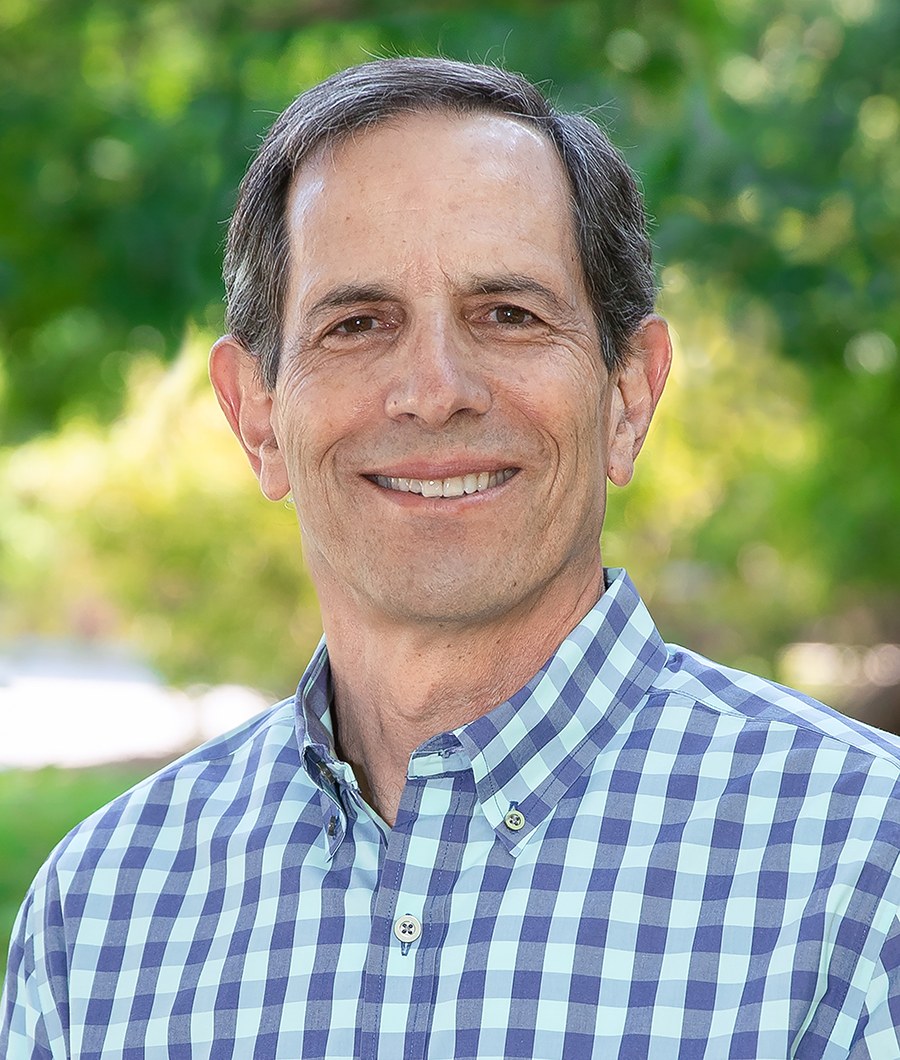B.S. Forest Science 1979

Stephen H. Schoenholtz
Stephen H. Schoenholtz graduated from Penn State in 1979 with B.S. degrees in Forest Science and Biology. He earned a master's degree in Forest Biology and a Ph.D. in Forest Soils at Virginia Tech University in 1983 and 1990, respectively. Currently, he is the Virginia Water Resources Research Center Director (VWRRC) and Professor of Forest Hydrology and Soils in the Department of Forest Resources and Environmental Conservation (2006-present) at Virginia Tech University.
Stephen has had a wide range of experiences during his professional career, including Visiting Senior Research Fellow at the New Zealand Forest Research Institute, Rotorua, New Zealand in the Soil and Site Productivity Research Group (January 1998 to July 1998); Postdoctoral Research Associate at the Virginia Polytechnic Institute and State University in the Department of Crop and Soil Environmental Sciences (May 1990 to October 1990); Staff Forester at the Texas Forest Service in College Station, Texas (April 1984 to June 1986); Research Assistant at Columbia University, Palisades, New York in the Lamont-Doherty Earth Observatory's Tree-Ring Laboratory (May 1983 to April 1984); Plant Protection and Quarantine Technician at the USDA Animal and Plant Health Inspection Service at Penn State University Park (May 1979 to August 1980); and Research Assistant at the Rocky Mountain Biological Laboratory, Crested Butte, Colorado (summers 1977 and 1978).
He began his faculty career at Mississippi State University in 1990, rising to the level of full professor by 2000. During this period, he also served as Director of the Mississippi Water Resources Research Institute (January to August 1991). From there he relocated to the Department of Forest Engineering, Resources, and Management at Oregon State University, Corvallis, Oregon until 2006 when he returned to Virginia Tech as director of the VWRRC.
As director, Stephen oversees a federally and state-funded water research center whose mission is to facilitate collaborative research, extension, and education programs to develop solutions to water resource challenges. His research and teaching programs focus on interactions between land management and water and soil resources. His current research has a strong interdisciplinary approach, emphasizing development of water-quality standards for headwater streams impacted by surface mining in the central Appalachians and has a significant policy component involving regular communication with government regulatory agencies, elected officials, nongovernmental organizations, and the coal-mining industry. He has been awarded $8 million in research grants over the course of his career.
Stephen has taught courses including a senior/graduate-level course in Watershed Assessment, Policy, and Management at Virginia Tech; and Sustainable Societies and Environments in New Zealand for the Study Abroad Program. At Oregon State he was an instructor for four senior/graduate courses. In 2003, he developed and gained University approval for a new graduate concentration in Forest Soil Science in the Department of Forest Engineering. At Mississippi State he taught nine undergraduate- and graduate-level courses and developed four new courses: Properties and Processes of Forested Watersheds, Forest Hydrology, Forest Soils, and Wetland Ecology and Management. In 2015 at Virginia Tech he successfully developed a new curriculum called the Interdisciplinary Bachelor of Science degree in Water: Resources Policy, and Management. This was the first of its kind in the United States and he remains as its coordinator.
Stephen has mentored 41 graduate students, three post-doctoral research associates, five research assistants, and more than 30 undergraduate students from a diverse range of academic departments at three universities. He has published approximately 100 papers and book chapters.
Examples of Stephen's professional affiliations include membership in the National Institutes for Water Resources (2001, 2006-present) and serving as board member (2008-2015), President-Elect (2015-2016), President (2016-2017), and Past President (2017-2018). For the past ten years he has served as Virginia Tech's lead delegate for the Universities Council on Water Resources. He has been a member of the Society of American Foresters since 1979. He has been an active member in the Society of Wetland Scientists (1991-present) and the Soil Science Society of America (1980-present).
In 1990, he was awarded the A.B. Massey Honorarium for outstanding academic and professional leadership in the School of Forestry and Wildlife Resources at Virginia Tech. In 1999, he was honored with the Distinguished Career Achievement Award, presented by the City of Wilkes-Barre, Pennsylvania. While at Oregon State, Stephen received the Xi Sigma Pi Honor Society Julie Kliewer Mentor Award for outstanding mentoring in the College of Forestry. In addition, over the years he has consulted for 11 organizations and agencies. His honor society memberships include Xi Sigma Pi and Phi Kappa Phi.
Stephen has given to the communities in which he has resided, primarily through sports programs and public-school education programs in Mississippi, Oregon, and Virginia. In Starkville, Mississippi, he was a coach for the Starkville Youth Soccer Association (1990-1999) and for the Starkville Youth Basketball League (1990-1997). He has been a guest lecturer in the Starkville, Mississippi, and Corvallis, Oregon, public schools. He has taught classes in Virginia Tech's Lifelong Learning Institute for adults 50 and older in Blacksburg, Virginia.
In his personal life Stephen has been blessed with a wonderful family and has always been involved in sports. He swam and ran competitively in high school and still swims and runs for exercise. He is an avid birdwatcher, hiker, and beekeeper. He relishes his role as a grandfather to Hannah and Ava, his young granddaughters and enjoys fly fishing and cooking fine food with his sons, Noah and Zack. He met Gloria, his wife of 38 years, at Penn State where they took ornithology, mycology, and mammalogy classes together and fell in love with nature and each other.
Department of Ecosystem Science and Management
- Office 814-865-7541
- Fax 814-865-3725
Department of Ecosystem Science and Management
- Office 814-865-7541
- Fax 814-865-3725

